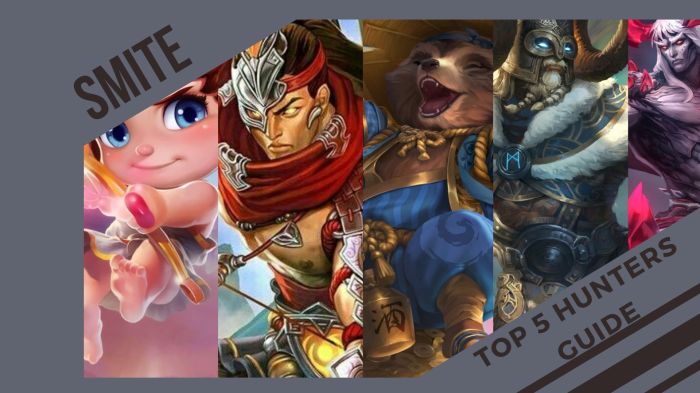The pursuit of hunting has captivated individuals for centuries, offering a unique blend of outdoor adventure, wildlife conservation, and cultural heritage. For those seeking a fulfilling career path in this captivating field, the best profession for hunters presents an array of rewarding opportunities.
From game wardens and hunting guides to wildlife biologists and conservationists, the hunting industry offers diverse career paths that cater to a range of skills and interests. This guide delves into the essential skills and qualifications required for success in hunting professions, explores the ethical considerations and cultural significance of hunting, and examines the latest advancements and emerging trends shaping the future of this dynamic field.
Hunting-Related Professions

Hunting is a multifaceted activity with a long history and cultural significance. Today, it continues to provide a livelihood and career opportunities for individuals passionate about wildlife and the outdoors.
There are various professions that involve hunting, including roles in wildlife management, conservation, and hunting education. These professionals play a crucial role in ensuring the sustainable management of wildlife populations and the preservation of hunting as a recreational activity.
Skills and Qualifications for Hunters

To succeed in a hunting-related profession, certain essential skills and qualifications are required. These include:
- Marksmanship: The ability to accurately and safely handle firearms.
- Tracking: The ability to locate and follow wildlife based on signs and tracks.
- Wilderness survival: The knowledge and skills to survive and navigate in the wilderness.
- Wildlife knowledge: A deep understanding of wildlife behavior, ecology, and management practices.
- Communication and interpersonal skills: The ability to effectively communicate with clients, colleagues, and the public.
Career Paths in Hunting
Within the hunting industry, there are various career paths available. Some of the most common include:
- Game wardens: Enforce hunting regulations, manage wildlife populations, and protect public safety.
- Hunting guides: Lead hunting expeditions, provide instruction, and ensure the safety of clients.
- Wildlife biologists: Conduct research, monitor wildlife populations, and develop management plans.
- Hunting lodge operators: Manage hunting lodges, provide accommodations, and organize hunting trips.
- Hunting equipment manufacturers: Design, produce, and market hunting gear and accessories.
Benefits and Challenges of Hunting Professions, Best profession for hunter
Pursuing a career in hunting offers numerous benefits, including:
- Working outdoors in a natural environment.
- Contributing to wildlife conservation and management.
- Experiencing physical and mental challenges.
- Building a strong camaraderie with fellow hunters.
However, there are also challenges associated with hunting professions:
- Long and irregular work hours, especially during hunting seasons.
- Physical demands and potential hazards in the wilderness.
- Ethical concerns and potential conflicts with anti-hunting groups.
- Limited career advancement opportunities in some areas.
Professional Organizations and Training
To enhance their skills and knowledge, hunters can join professional organizations and participate in training programs. Some notable organizations include:
- National Rifle Association (NRA): Provides firearms training, hunter education, and advocacy for hunting rights.
- Safari Club International (SCI): Promotes hunting as a conservation tool and offers educational programs for hunters.
- National Wild Turkey Federation (NWTF): Focuses on the conservation and management of wild turkeys.
- Ducks Unlimited: Works to protect and restore waterfowl habitats.
Ethical Considerations in Hunting
Hunting involves ethical responsibilities and guidelines. Hunters are expected to adhere to fair chase principles, which include:
- Respecting wildlife and treating animals humanely.
- Hunting only for legitimate purposes, such as food, population control, or conservation.
- Using appropriate hunting methods and equipment.
- Promoting sustainable hunting practices that ensure the long-term health of wildlife populations.
Technology and Innovation in Hunting
Advancements in technology have significantly impacted hunting practices. Some emerging technologies include:
- Laser rangefinders: Accurately measure distances to targets.
- Thermal imaging: Detect and track animals in low-light conditions.
- GPS tracking devices: Monitor animal movements and improve hunting efficiency.
- Drones: Enhance scouting and aerial surveillance.
Hunting as a Cultural Heritage

Hunting has a rich cultural and historical significance in many societies. In some cultures, it is an integral part of traditional practices, rituals, and storytelling.
Hunting has also played a significant role in human evolution, providing sustenance and contributing to the development of hunting tools and techniques.
Conservation and Sustainability in Hunting
Hunters play a crucial role in wildlife conservation and sustainable management. They contribute to:
- Habitat preservation: By supporting organizations that acquire and protect wildlife habitats.
- Population control: By selectively harvesting animals to maintain healthy populations.
- Research: By providing data and funding for wildlife research and management programs.
Future Trends in Hunting Professions

The future of hunting professions is expected to be shaped by several emerging trends:
- Rise of ecotourism: Combining hunting with wildlife viewing and other outdoor experiences.
- Impact of climate change: Altering wildlife distributions and hunting patterns.
- Growing popularity of ethical hunting practices: Emphasizing sustainability and responsible hunting.
- Advancements in technology: Continuously improving hunting equipment and techniques.
FAQ Compilation: Best Profession For Hunter
What are the essential skills required for a successful hunting career?
Marksmanship, tracking, wilderness survival, knowledge of wildlife behavior, and ethical hunting practices are crucial skills for hunters.
What are the different career paths available in the hunting industry?
Game wardens, hunting guides, wildlife biologists, conservation officers, and hunting educators are some of the diverse career paths within the hunting industry.
What are the ethical considerations associated with hunting?
Respect for wildlife, fair chase principles, and sustainable hunting practices are fundamental ethical considerations that hunters must adhere to.
How is technology shaping the future of hunting?
Laser rangefinders, thermal imaging, and GPS tracking devices are among the technological advancements that are enhancing hunting practices and promoting conservation efforts.
